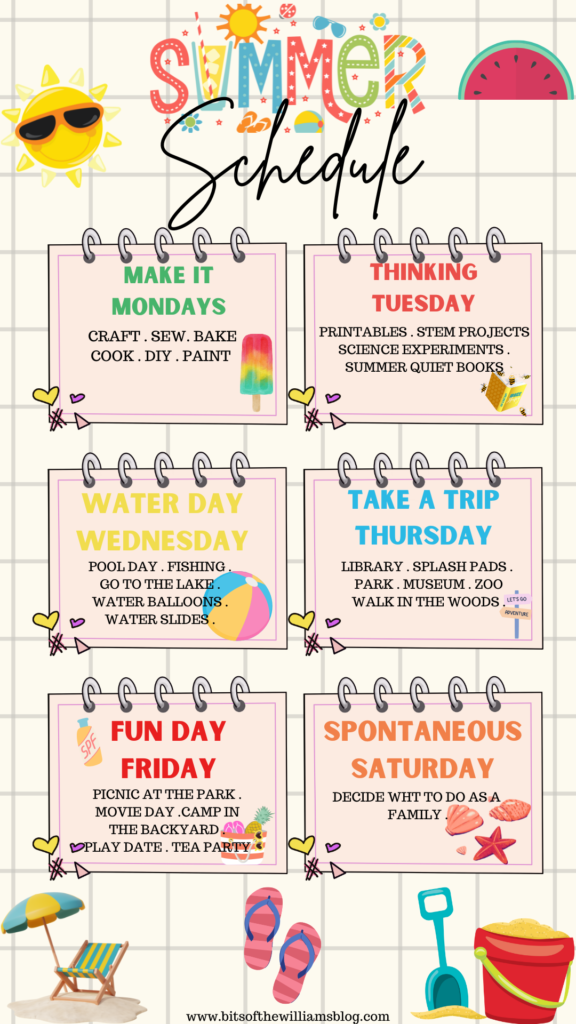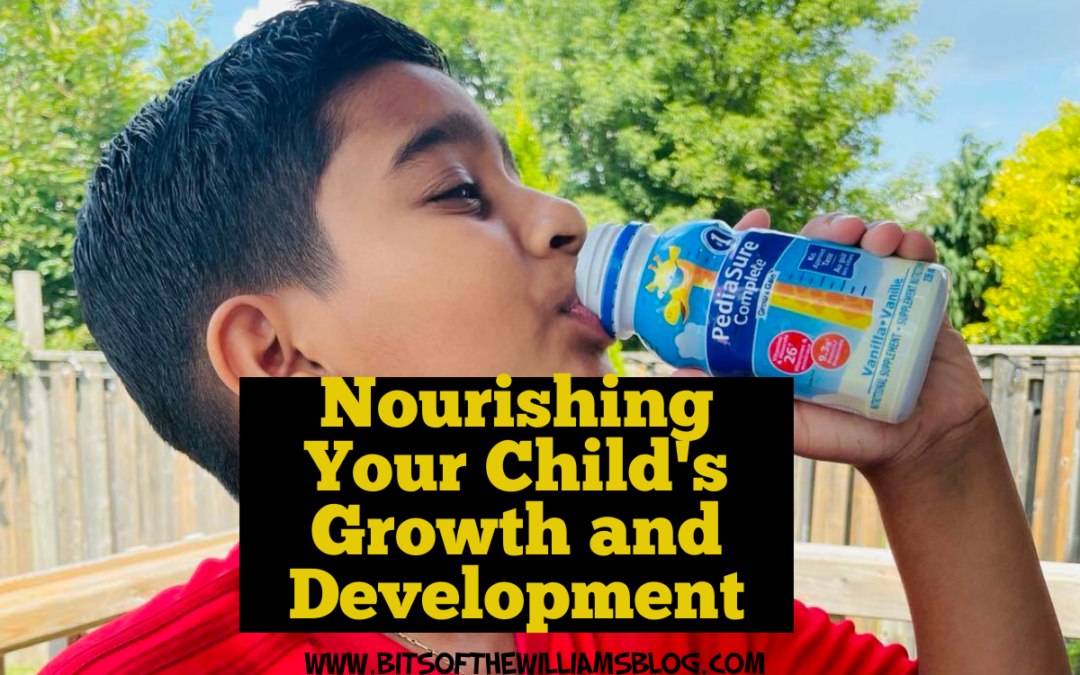
by bitsofthewilliams | Jul 24, 2023 | PARENTING
As parents, we always want the best for our children, especially when it comes to their health and well-being. Providing them with a balanced diet is crucial for their growth and development, but it’s not always easy to ensure they receive all the essential nutrients they need. Enter PediaSure, a well-known nutritional supplement designed specifically for children. In this blog post, we’ll explore what PediaSure is, its benefits, and how it can be a valuable addition to your child’s diet.
What is PediaSure?
PediaSure is a scientifically formulated nutritional drink that offers a wide range of essential nutrients to support children’s overall growth and development. Developed by experts in pediatric nutrition, this supplement is intended for children between the ages of 1 to 13 years old. It comes in various flavors, making it more appealing to kids and easier for parents to incorporate into their daily routines.
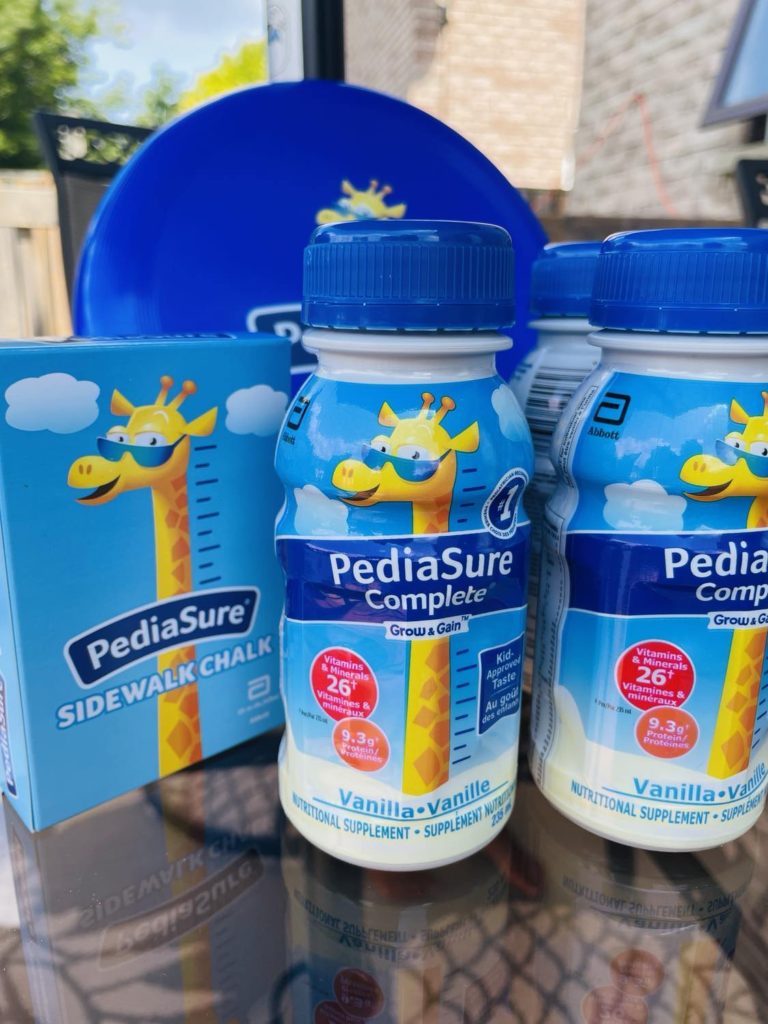
The Key Benefits of PediaSure
-
Balanced Nutrition: PediaSure is packed with a well-balanced mix of proteins, carbohydrates, healthy fats, vitamins, and minerals, which are essential for a child’s overall growth and development. These nutrients play a vital role in supporting their immune system, bone health, and cognitive function.
-
Growth Support: During the early years, children undergo significant physical and mental growth. PediaSure’s protein content helps in building and repairing tissues, ensuring healthy muscle development, while its calcium and vitamin D aid in strengthening bones.
-
Weight Gain: Some children may struggle with gaining weight, either due to picky eating habits or certain health conditions. PediaSure can be beneficial in such cases, providing an additional calorie source to help them reach a healthy weight.
-
Immune System Boost: PediaSure is fortified with antioxidants and essential vitamins like vitamin C and zinc, which play a crucial role in bolstering a child’s immune system, reducing the risk of illnesses and infections.
-
Cognitive Development: The omega-3 fatty acids present in PediaSure contribute to brain development and cognitive function, helping children stay attentive and focused.
-
Digestive Health: PediaSure contains prebiotics that support a healthy gut microbiome, aiding in better digestion and nutrient absorption.
Incorporating PediaSure into Your Child’s Diet
While PediaSure is a beneficial supplement, it is important to note that it should not replace regular meals but rather complement them. It can be used as a convenient and nutritious addition to your child’s diet, especially if they have a limited appetite or are not meeting their nutritional needs through regular food intake.
Here are some tips for incorporating PediaSure into your child’s diet:
- Consult with a Pediatrician: Before introducing any new supplement to your child’s diet, it’s essential to consult with their pediatrician. They can assess your child’s specific nutritional needs and advise on the appropriate serving size.
- Serve as a Snack: PediaSure can be served as a healthy snack between meals, providing an extra boost of nutrition.
- Blend into Smoothies: Get creative and blend PediaSure with fresh fruits and veggies to create delicious and nutritious smoothies that your child will love.
- Freeze into Popsicles: During hot weather, freeze PediaSure into popsicles for a fun and refreshing treat that also provides essential nutrients.
PediaSure can be a valuable ally in ensuring your child receives the necessary nutrients for optimal growth and development. With its balanced nutrition, growth support, immune system benefits, and cognitive development advantages, PediaSure offers a comprehensive solution for parents seeking to bridge the nutritional gaps in their child’s diet. Remember, though, that PediaSure should always be used under the guidance of a pediatrician and should complement a well-rounded diet. By nourishing your child with PediaSure, you’re setting them on a path to a healthier and brighter future.
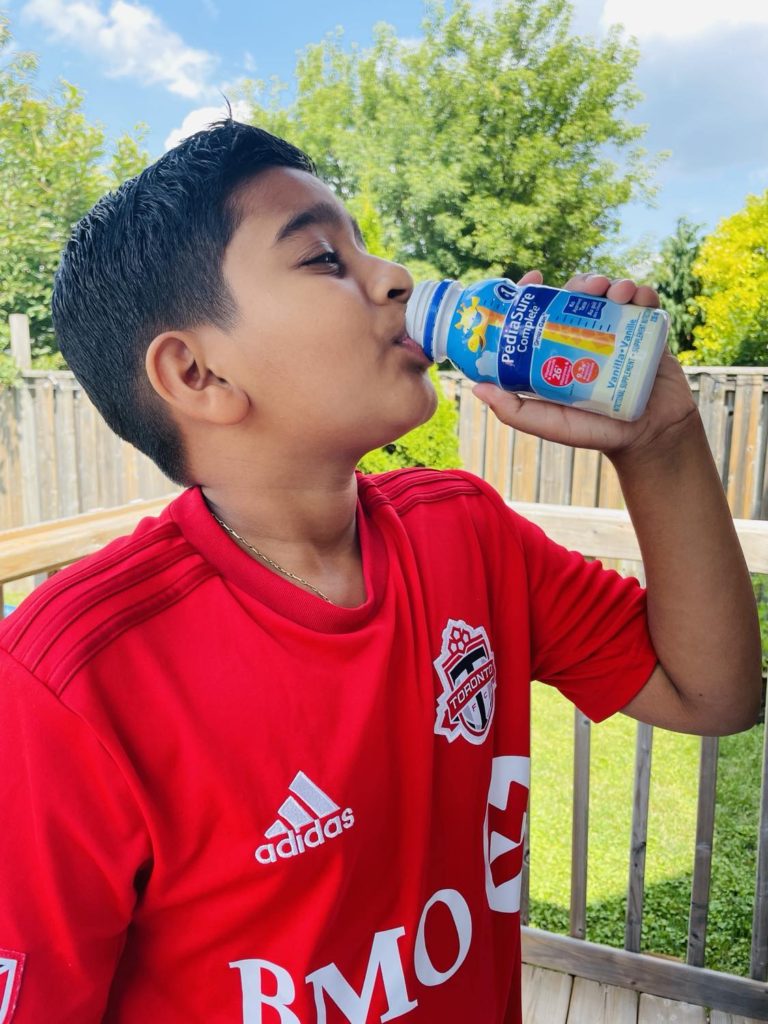


by bitsofthewilliams | Jul 24, 2023 | BACK TO SCHOOL EDITION, PARENTING
As the school bells chime once again, signaling the start of a new academic year, parents and educators eagerly prepare their young learners for the challenges that lie ahead. Amidst the hustle and bustle of purchasing school supplies and adjusting to new routines, one crucial aspect often gets overlooked: sleep. Adequate sleep is a fundamental pillar of a child’s physical and mental development, and it plays an indispensable role in their success as they return to school. In this blog post, we will delve into the significance of sleep for children and explore how it can positively impact their academic performance and overall well-being.
-
Cognitive Function and Memory
Sleep is essential for enhancing cognitive function and memory consolidation in children. During sleep, the brain processes and stores information learned during the day, solidifying it into long-term memory. Without sufficient sleep, children may find it challenging to retain and recall crucial information, leading to decreased academic performance. A well-rested mind is more alert, focused, and receptive, enabling students to grasp new concepts more effectively and perform better in exams.
-
Mood Regulation
Have you noticed how cranky and irritable a sleep-deprived child can be? Sleep plays a vital role in regulating emotions and mood in children. Sufficient rest allows them to better cope with stress and emotional challenges, fostering a more positive and amiable attitude towards their peers and teachers. This emotional stability promotes a healthy social environment, making it easier for children to build meaningful connections and collaborate with others, both inside and outside the classroom.
-
Physical Health and Immune System
An often-overlooked aspect of sleep is its impact on physical health. Adequate sleep strengthens a child’s immune system, reducing the risk of falling prey to common illnesses like colds and flu. Regular sleep patterns also contribute to maintaining a healthy weight and metabolism, mitigating the risk of obesity and related health issues. A well-rested body is more resilient, enabling kids to stay active and participate in physical activities with enthusiasm, which, in turn, further bolsters their overall health.
-
Attention and Concentration
In the classroom setting, the ability to concentrate and sustain attention is crucial for effective learning. Sleep deprivation can lead to increased distractibility and a shorter attention span, making it difficult for children to engage fully in lessons. By prioritizing sleep, parents and educators can help students remain alert, attentive, and actively participate in class discussions, resulting in a more productive and enriching learning experience.
-
Behavioral Regulation
Sleep has a significant impact on a child’s behavioral regulation. Fatigue and sleepiness can lead to impulsive behavior, reduced self-control, and heightened irritability. In contrast, well-rested children are more likely to exhibit positive behavior, improved decision-making skills, and a greater capacity to handle conflicts constructively. This not only contributes to a peaceful classroom environment but also aids in the development of vital social and emotional skills.
-
Stress Reduction
The transition from vacation mode to the demands of school can sometimes be stressful for children. Sleep serves as a natural stress reducer, allowing kids to recharge and face challenges with a refreshed mindset. Sufficient sleep can help alleviate anxiety and improve a child’s ability to cope with academic pressures, extracurricular activities, and the daily demands of school life.
As we bid adieu to the summer break and embrace the excitement of a new school year, let us not underestimate the transformative power of sleep on children’s lives. Prioritizing adequate sleep for our young learners can significantly impact their academic performance, emotional well-being, and physical health. By cultivating healthy sleep habits from an early age, parents and educators set the stage for a successful and fulfilling educational journey for every child, ensuring they have the energy, focus, and enthusiasm to thrive in school and beyond.

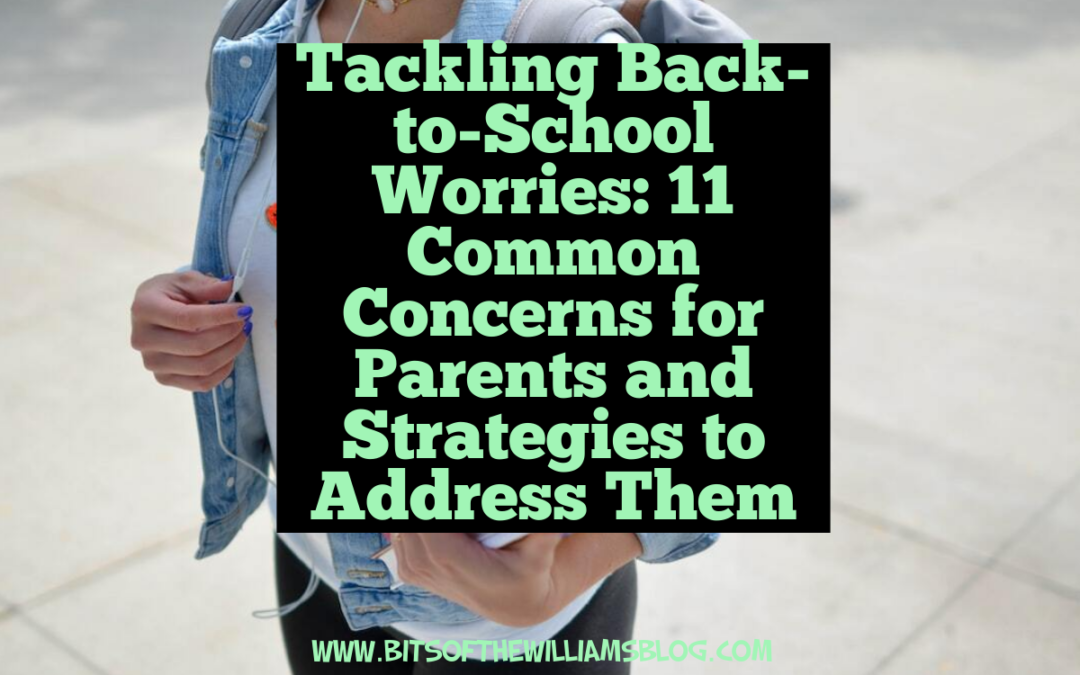
by bitsofthewilliams | Jul 22, 2023 | BACK TO SCHOOL EDITION, PARENTING
As the start of the school year approaches, it’s natural for parents to have concerns and worries. From academic performance to social interactions, there are various aspects of their child’s schooling that can cause apprehension. However, by proactively addressing these concerns, parents can set a positive foundation for their child’s educational journey. In this blog post, we will explore 11 common worries parents might have about the start of school and provide strategies to tackle them effectively.
-
Academic Performance:
Concerns about a child’s academic performance are common. To address this worry, establish open lines of communication with teachers, attend parent-teacher conferences, and engage in regular discussions about your child’s progress. Encourage a positive attitude towards learning and offer support at home, such as creating a study routine and providing a quiet space for homework.
-
Bullying and Peer Pressure:
Worries about bullying and peer pressure can be unsettling. Foster open dialogue with your child about these topics, emphasizing the importance of assertiveness and empathy. Teach them to recognize signs of bullying, and encourage them to seek help from teachers or school counselors. Encourage your child to cultivate diverse friendships and engage in activities that build self-confidence and resilience.
-
Social Integration:
Starting a new school year can be intimidating for children, especially if they are transitioning to a different school or grade. Help your child build social skills by arranging playdates with classmates before the school year begins. Encourage involvement in extracurricular activities or clubs to facilitate connections with peers who share common interests.
-
Time Management and Organization:
The demands of schoolwork and extracurricular activities can cause concerns about time management and organization. Teach your child effective planning and organization skills, such as using a planner or digital calendar, breaking tasks into manageable steps, and prioritizing responsibilities. Encourage them to establish a routine that balances academic, extracurricular, and personal time.
-
School Safety:
Parents often worry about their child’s safety at school. Stay informed about the school’s safety protocols and emergency procedures. Establish open communication with school administrators and teachers regarding any specific concerns. Teach your child about personal safety, such as following rules, identifying trusted adults, and reporting any suspicious or uncomfortable situations.
-
Homework Overload:
The volume of homework can be overwhelming for both parents and children. Set up a designated homework area at home, free from distractions. Establish a consistent homework routine and teach your child effective time management strategies, such as breaking tasks into smaller chunks and prioritizing assignments. Encourage regular breaks and provide support when needed.
-
Peer Relationships:
Parents may worry about their child’s ability to form positive and healthy peer relationships. Encourage open conversations about friendship dynamics and guide your child on effective communication, conflict resolution, and empathy. Encourage them to participate in group activities or sports that foster teamwork and cooperation.
-
Standardized Testing:
Standardized testing can generate anxiety for parents and children alike. Keep the focus on learning and personal growth rather than solely on test scores. Help your child develop effective study strategies, offer encouragement, and provide a calm and supportive environment during the testing period.
-
Health and Wellness:
Concerns about your child’s physical and mental health are valid. Prioritize their well-being by ensuring they have a balanced diet, get enough sleep, and engage in regular physical activity. Foster open communication about their emotions and encourage them to seek help from trusted adults if needed. Stay connected with the school regarding any health-related concerns or accommodations.
-
Transition to a New School:
Moving to a new school can be a major worry for parents and children. Visit the new school together before the start of the year, meet teachers and administrators, and explore the campus. Connect with other parents and families in the new school community to ease the transition. Encourage your child to embrace the opportunity to make new friends and engage in new experiences.
-
Balancing Parental Involvement:
Finding the right balance between being involved in your child’s education and allowing them to become independent can be a concern. Support your child’s autonomy by gradually encouraging them to take responsibility for their own learning. Stay engaged by attending school events, volunteering when appropriate, and maintaining open lines of communication with teachers and school staff.
As parents, it’s natural to have concerns about various aspects of your child’s schooling. By addressing these worries proactively, you can support your child’s academic and emotional well-being. Foster open communication, establish routines, stay informed, and provide a supportive environment. Remember, your involvement and support play a significant role in helping your child navigate the challenges and joys of the school year. Embrace these strategies and watch as your worries gradually transform into confidence and pride in your child’s growth and development.
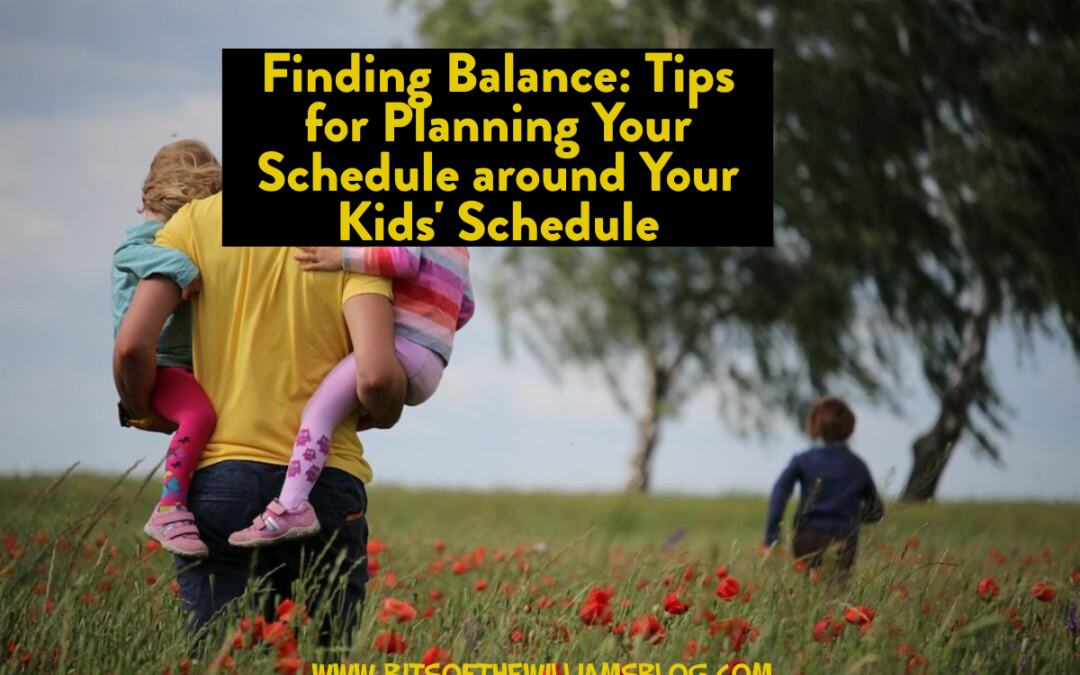
by bitsofthewilliams | Jul 21, 2023 | PARENTING
As a parent, balancing your own commitments with your children’s activities can sometimes feel like a juggling act. From school, extracurriculars, and social engagements, it’s essential to find a way to plan your schedule around your kids’ schedule to create a harmonious routine. By effectively managing your time and prioritizing your family’s needs, you can navigate the demands of parenthood while still accomplishing your own goals. In this blog post, we will explore practical tips for planning your schedule around your kids’ schedule, allowing you to strike a balance between your personal and family responsibilities.
-
Sync Calendars:
Start by creating a centralized calendar that includes all family members’ activities and commitments. This could be a digital calendar, a shared app, or even a physical calendar on the wall. Syncing schedules will help you visualize everyone’s commitments and identify overlapping time slots for efficient planning.
-
Prioritize Essential Activities:
Identify the most important activities for your children and prioritize them. This includes school, extracurricular activities, medical appointments, and family events. Ensure these commitments are non-negotiable and build your schedule around them.
-
Communicate and Collaborate:
Maintain open lines of communication with your children about their schedule and involve them in the decision-making process. Discuss their preferences, interests, and commitments to ensure they feel included and heard. By involving them, you can find mutually agreeable solutions and instill a sense of ownership and responsibility in managing their time.
-
Create Blocks of Time:
Once you have identified the essential activities, create blocks of time in your schedule for specific tasks. Designate time for work, personal activities, household chores, and quality family time. By setting aside dedicated blocks of time, you can ensure that each area of your life receives attention.
-
Maximize Time Efficiency:
Look for ways to maximize your time efficiency throughout the day. For example, use commuting time to catch up on phone calls or listen to audiobooks. Combine tasks like grocery shopping with picking up your children from school. Small adjustments can help you make the most of your time.
-
Practice Flexibility:
Flexibility is key when planning your schedule around your children’s activities. Understand that unexpected changes may occur, and be willing to adapt and adjust as needed. Having a flexible mindset will help you navigate any unforeseen circumstances without feeling overwhelmed.
-
Delegate and Seek Support:
Recognize that you don’t have to do everything on your own. Delegate tasks and responsibilities to your partner, family members, or trusted friends. Seek support from your support network for childcare, school pickups, or household chores. Relying on others will help alleviate the pressure and allow you to focus on important tasks.
-
Prioritize Self-Care:
Make self-care a priority by scheduling time for yourself. It’s essential to take care of your own well-being to effectively manage your schedule and meet the demands of parenthood. Dedicate time each week for activities that recharge and rejuvenate you, such as exercise, hobbies, or spending time with friends.
-
Be Realistic and Set Boundaries:
Set realistic expectations for yourself and your children. Understand that you can’t do everything and that it’s okay to say no to certain commitments. Set boundaries and learn to prioritize what truly matters to you and your family. This will help you maintain a healthier work-life balance.
-
Regularly Evaluate and Adjust:
Regularly assess your schedule and make adjustments as needed. As your children grow and their interests evolve, their schedule may change. Stay flexible and be willing to adapt your schedule accordingly. Regular evaluations will ensure that your schedule remains effective and aligned with your family’s needs.
-
Practice Open Communication:
Maintain open lines of communication with your children, partner, and other family members involved in your schedule. Regularly check in with each other to ensure everyone’s needs are being met. Effective communication will help address any conflicts or challenges that may arise.
Planning your schedule around your children’s activities requires organization, flexibility, and effective time management. By syncing calendars, prioritizing essential activities, and practicing open communication, you can strike a balance between your personal and family responsibilities. Remember to set boundaries, delegate tasks, and prioritize self-care to avoid burnout. Finding the right balance may require trial and error, but with patience and perseverance, you can create a schedule that accommodates your family’s needs while allowing you to pursue your own goals and aspirations.
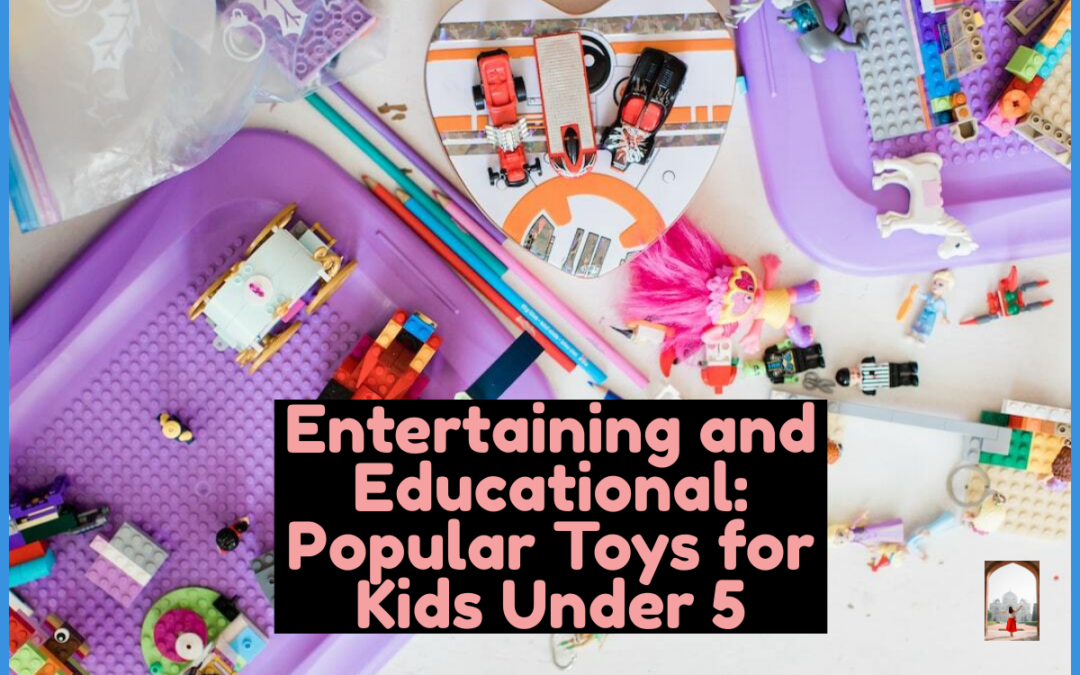
by bitsofthewilliams | Jul 20, 2023 | GIFT GUIDES, KIDS CORNER, PARENTING
Childhood is a magical time filled with wonder, imagination, and curiosity. As parents, guardians, or caregivers, we want to provide the best toys that not only entertain but also foster essential skills and development in our little ones. If you have a child under the age of 5, you’re probably on the lookout for toys that are safe, engaging, and age-appropriate. In this blog post, we’ll explore a selection of popular toys that will captivate and nurture the minds of your young children.
Building Blocks and Construction Sets: Building blocks and construction sets are classic toys that have stood the test of time for good reason. These versatile toys encourage creativity, problem-solving, and fine motor skills. Toddlers and preschoolers love stacking blocks to create tall towers or imaginative structures. Look for sets with different shapes, sizes, and colors to make the playtime even more exciting.
Shape Sorters and Puzzles: Shape sorters and puzzles are excellent toys for developing cognitive skills and hand-eye coordination. These toys challenge kids to match shapes, colors, and patterns, enhancing their problem-solving abilities. Choose age-appropriate puzzles with large, sturdy pieces to prevent choking hazards and frustration.
Musical Instruments: Introducing your child to the world of music can be incredibly rewarding and entertaining. Musical instruments like toy drums, xylophones, and shakers allow children to explore rhythm, melody, and creativity. Not only do they have fun making sounds, but they also develop their auditory and sensory skills in the process.
Art Supplies: Nurturing your child’s artistic expression is a fantastic way to foster creativity and imagination. Provide them with child-safe art supplies, such as washable crayons, finger paints, and non-toxic markers. These tools encourage fine motor skills, hand coordination, and self-expression, while also offering hours of artistic fun.
Role-Play Sets: Role-play sets, such as play kitchens, doctor kits, and toolsets, are perfect for encouraging imaginative play. Children love pretending to be grown-ups and imitating daily activities they see around them. These toys not only entertain but also help develop social skills, empathy, and language abilities as they engage in pretend conversations and scenarios.
Stacking and Nesting Toys: Stacking and nesting toys are excellent for developing hand-eye coordination, spatial awareness, and problem-solving skills. Whether it’s stacking cups, nesting dolls, or rings on a peg, these toys offer a satisfying challenge for young children while promoting early math concepts.
Ride-On Toys: Ride-on toys, such as balance bikes, tricycles, and scooters, are a great way to encourage physical activity and improve gross motor skills. They also provide a sense of independence and confidence as children learn to navigate their surroundings on their own wheels.
Interactive Learning Toys: In today’s digital age, there are numerous interactive learning toys that combine fun and education. Look for toys that incorporate letters, numbers, shapes, and colors to introduce foundational concepts in an engaging manner. However, it’s essential to strike a balance and ensure that screen time is limited for young children.
Choosing the right toys for kids under 5 can have a significant impact on their development and early learning experiences. From building blocks to art supplies and interactive learning toys, the market offers a wide range of options to stimulate their creativity, imagination, and cognitive skills. As you introduce these toys to your little ones, remember that the most crucial aspect is the time spent together, bonding, and nurturing their innate curiosity and love for exploration. With the right toys and a dash of love, you’ll be supporting their growth and providing cherished memories for years to come.
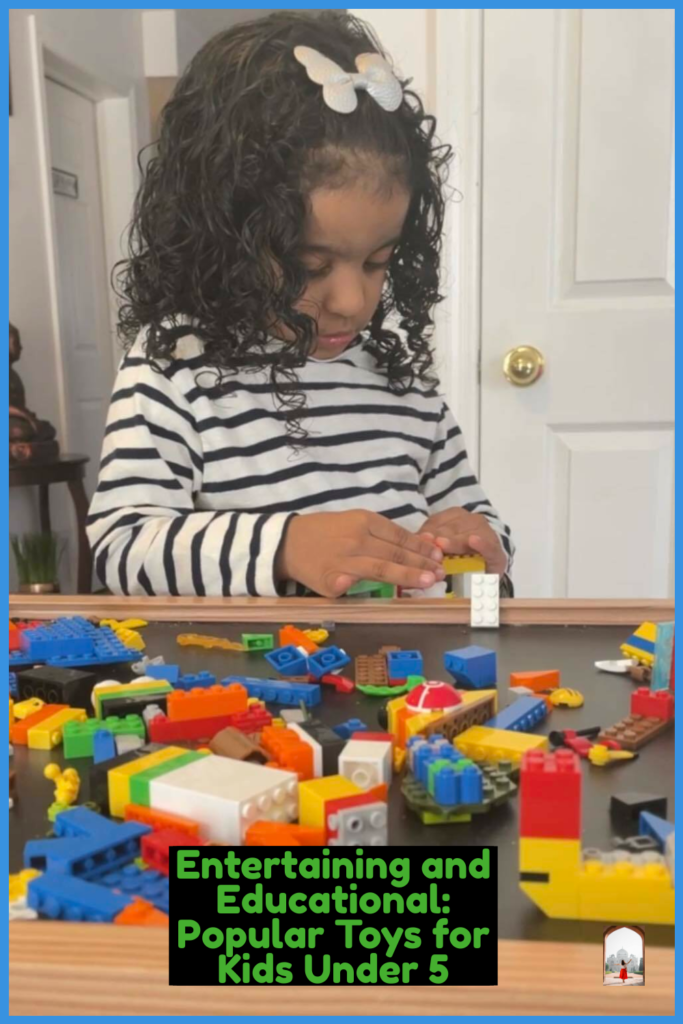

by bitsofthewilliams | Jul 19, 2023 | KIDS CORNER, LIFESTYLE, PARENTING
Summer is here, and with school out, it’s time for kids to enjoy their well-deserved break. While the warm weather calls for outdoor adventures and playtime, it’s also essential to keep young minds engaged and growing during the summer months. Fortunately, there is a wide array of interactive and enjoyable summer learning tools designed specifically for kids. In this blog post, we’ll explore some top-notch resources that will not only keep your child entertained but also foster their curiosity and love for learning throughout the summer.
1. ABCmouse- Adventures in Learning: ABCmouse is an award-winning educational platform that provides a fun and immersive learning experience for kids aged 2 to 8. With a diverse range of interactive games, puzzles, songs, and activities, children can explore subjects like reading, math, science, art, and more. The platform’s engaging characters and colorful animations make learning feel like an exciting adventure. Parents can track their child’s progress and customize the learning path to suit their interests and abilities.
2. Khan Academy Kids- Learning Made Playful: Khan Academy Kids caters to children aged 2 to 7, offering a collection of interactive activities and games designed to develop essential skills. From early reading and writing to math and social-emotional learning, this app covers it all. Children can embark on virtual quests and earn rewards as they complete educational challenges. Khan Academy Kids also includes delightful storytelling and drawing activities, making it a delightful platform for little learners.
3. National Geographic Kids- Discover the World: National Geographic Kids is a treasure trove of fascinating information about animals, science, history, geography, and more. With captivating articles, videos, quizzes, and interactive games, children can embark on a virtual journey of exploration and discovery. The platform encourages a love for nature and knowledge, inspiring kids to become curious and informed global citizens.
4. Osmo- Hands-On Learning: Osmo brings an innovative blend of physical and digital play to the learning experience. With its interactive iPad-based games and accompanying tangible pieces, Osmo engages kids in subjects like math, coding, art, and more. The hands-on approach encourages problem-solving, creativity, and critical thinking. Osmo offers an enjoyable way for kids to learn and have fun simultaneously.
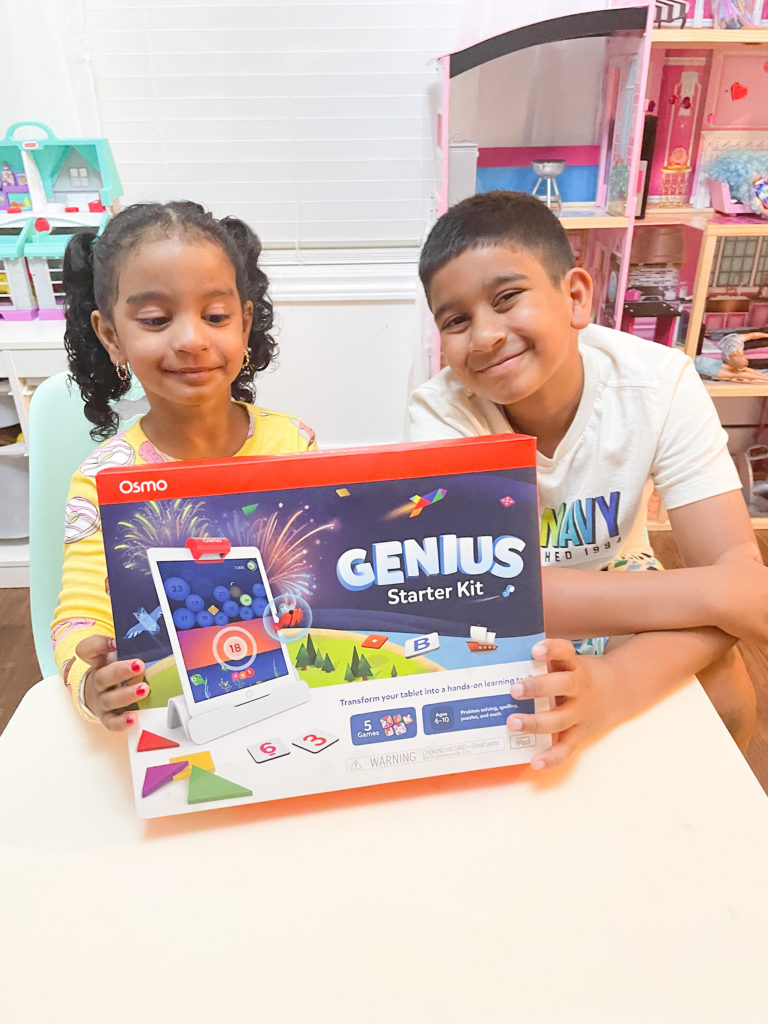
5. Scratch- Code Your Own Adventures: For aspiring young coders, Scratch is an ideal summer learning tool. Developed by MIT, Scratch allows kids to create interactive stories, games, and animations by dragging and stacking coding blocks. It’s a creative way to introduce kids to computer programming concepts without the need for complex syntax. Kids can share their creations with a global community, inspiring others and fostering a sense of achievement.
6. KiwiCo- Hands-On STEAM Projects: KiwiCo offers subscription-based crates filled with hands-on STEAM (Science, Technology, Engineering, Arts, and Math) projects. Each crate is tailored to different age groups and interests, allowing kids to experiment and create while learning essential concepts. Whether it’s building a mini volcano or designing a kaleidoscope, KiwiCo sparks curiosity and nurtures a love for learning through hands-on exploration.
Summer learning doesn’t have to be dull or overwhelming for kids. With these top summer learning tools, children can embark on exciting educational journeys that are engaging and entertaining. From interactive learning platforms that cover a range of subjects to hands-on STEAM projects and coding adventures, there’s something for every young learner’s interests and curiosity. So, let your kids make the most of their summer by exploring the world of fun and knowledge! After all, with the right tools, learning can be as enjoyable as a day at the beach. Happy summer learning!

KEEPING A ROUTINE – Consistency is key; stick to this schedule, and soon, maintaining a routine will become second nature. We use the schedule below to keep me on track. Click to download a copy you can use.
